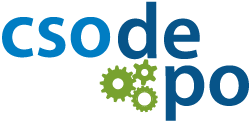Training for civil society and community activists in Armenia and Georgia
WHEN 2 September 2024 (All day) - 6 September 2024 (All day)
WHERE Yerevan, Armenia and follow-up sessions online
ORGANIZED BY OSCE Office for Democratic Institutions and Human Rights (ODIHR) in co-operation with the Nansen Center for Peace and Dialogue
The OSCE Office for Democratic Institutions and Human Rights (ODIHR), in co-operation with the Nansen Center for Peace and Dialogue, is inviting applications for a training cycle to develop practical skills to hold open dialogues about migration, freedom of movement and social inclusion issues. The course will consist of:
Five days in-person training sessions from 2 to 6 September 2024, held in Yerevan;
Two, half-day online sessions on 20 September and 16 December;
and Online coaching.
WHO
The course is open to civil society actors and community workers based in Armenia and Georgia (citizenship of the applicant is not decisive).
This training can be useful for:
- community centre workers who would like to create a space where members of different communities can meet and get to know each other;
- civil society activists advocating for the rights of migrants, returnees or displaced persons who would like to learn about dialogue as a tool to bring people together and discuss their experiences and perspectives;
- teachers looking for new ways to release tensions arising at their school;
- city council or local administration employees interested in fostering mutual understanding and peaceful coexistence in their community;
- social or humanitarians workers who want to strengthen their skills to facilitate communication in tense situations.
Please consult this document for more information, including about selection criteria.
WHAT
The course aims to provide participants with the skills and tools necessary to organize and facilitate open dialogues on migration, freedom of movement and social inclusion issues in their work or communities. In the Armenian and Georgian contexts, issues such as family separations caused by forced displacement, economic migrations resulting in population decrease, return and reintegration, and restrictions to freedom of movement in some regions can be approached through dialogue.
Topics addressed in the training will include:
- What is an open dialogue?
- What is facilitation and how to facilitate a dialogue?
- Important elements in a dialogue
- The art of asking good questions
- Strengthening listening skills
- How to build trust?
- How to plan and implement a public dialogue in your community or work?
- How to deal with emotions that might arise during dialogue?
- Practicing dialogue facilitation
HOW
The training will be interactive and will require a high level of active participation, including through group work and exercises. Participants will practice their facilitation skills by conducting dialogue sessions facilitated by other participants to gain experience and confidence to independently organize and facilitate dialogues after the training. The course is conducted in English by trainers with experience of dialogue training and facilitation and proven gender and cultural sensitivity.
Participants are expected to:
- Have a genuine desire and capacity to organize open dialogues on migration or freedom of movement in their communities;
- Participate full-time in the 5-day in-person training on 2-6 September 2024;
- Prepare a feasible dialogue plan;
- Attend a follow-up online workshop to take place on 20 September 2024 to discuss their dialogue plan with other participants;
- Hold at least one public dialogue on migration or freedom of movement in their community;
- Attend a final online workshop on 16 December 2024 to present their achievements and conclude the training cycle.
- Participants who complete the whole cycle, including organizing at least one dialogue before the final workshop, will receive a certificate.
APPLICATION
Applicants should complete the application form and upload their CV (PDF or DOC) by 21 July 2024. ODIHR will strive to ensure a geographical and gender balance among participants. By 2 August 2024, successful candidates (only) will be informed about the outcome of the selection process.
If you have any questions about the content of the training or the selection procedure, please contact [email protected] and [email protected].
